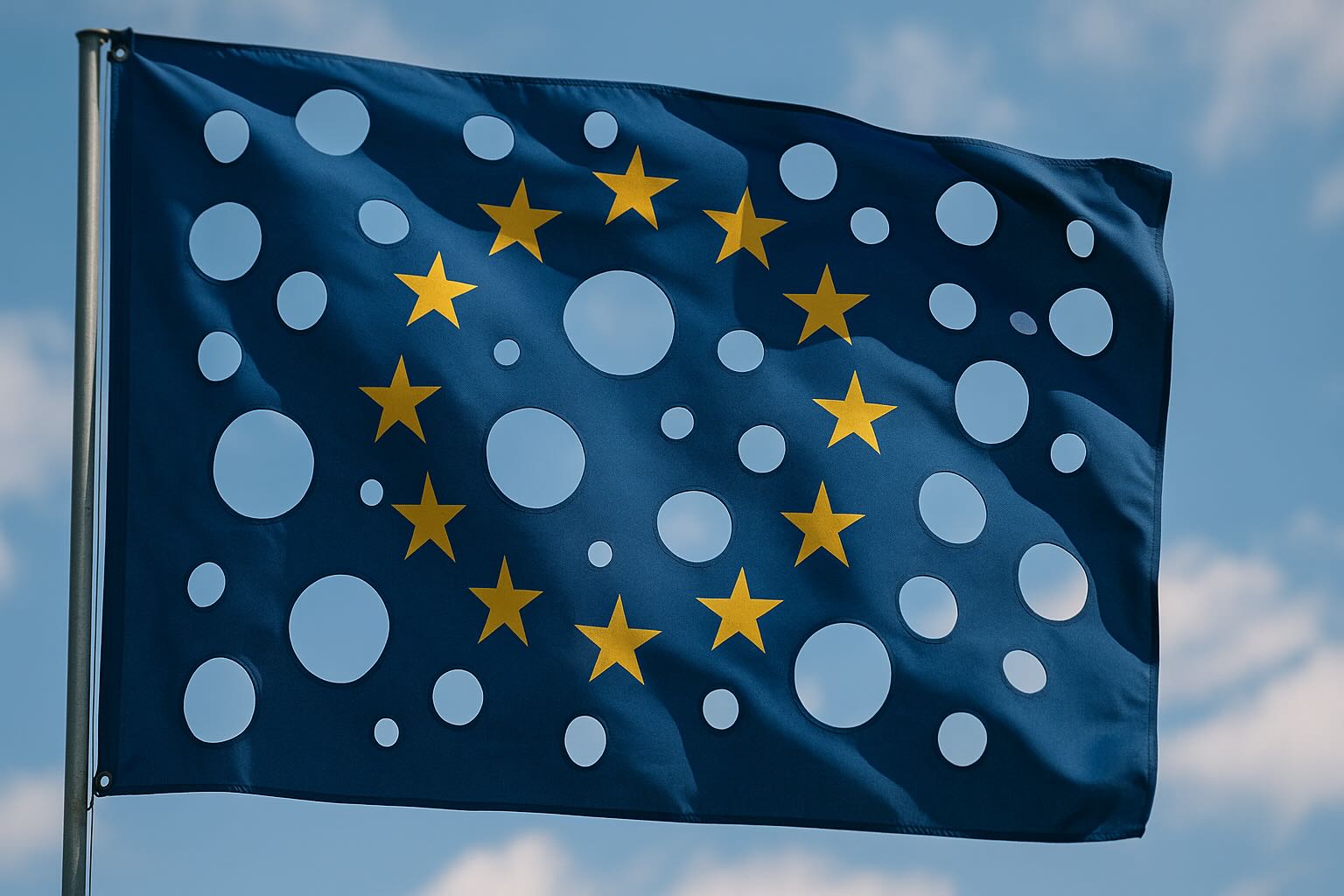Though probably no State of the Union speech has ever earned unanimous approval, Commission President Ursula von der Leyen’s recent monologue fared even worse than usually.
Now that the dust (and first emotional outbursts) settled, it has become clear that the 2025 SOTU has all the structural integrity of a good Swiss cheese: airy, holey and mysteriously missing key ingredients.
Applauded by some, abhorred by others.
Strong on rhetoric while rather vague on substance.
Maybe would have been splendid as a motivational speech in a Hollywood blockbuster, the kind the heroes give on the eve of the battle to encourage their disheartened fighters, but not as a truthful and honest report on the current state of affairs in the EU.
But, based on the MEPs reactions following her speech, it wasn’t even that: a “classic von der Leyen speech”, as Belgian MEP Kathleen van Brempt said. One that proves that the Commission knows about all the challenges, yet fails to show real competence in delivering results.
A masterclass in omission, politely tiptoeing around a few sensitive topics as if they didn’t exist (or rather, giving those a wide berth) – an obvious attempt to prove that this Commission is not that Commission, no longer attempting to align with divisive issues or at least doing it only behind closed doors instead of loudly advertising it; and simply rebranding other policies to mask the sad reality that the EU failed to show any significant progress during the first year of her second mandate.
Many drew attention to the fact that former buzzwords (think ‘equality’) were mostly absent from her speech – while von der Leyen spent a considerable chunk of her time talking about the cost-of-living crisis or the difficulties faced by Europe’s “outstanding farmers and fishers” who “produce at affordable prices”.
Maybe it was a sign that the Commission will focus less on costly and hard-to-achieve green projects or animal welfare (“no more balls to cows, please”), and more on “high input costs” or “red tape” and “unfair competition”.
The Commission President promised that “we are acting on all those fronts” – though the details were quite scarce. In fact, social policy was barely touched upon during her 1.5 hour monologue.
One distinct feature of the speech was its unusually belligerent tone.
Von der Leyen repeatedly emphasized that Europe was “in a fight” for its “future and values” amidst a series of global conflicts.
A vision of a stronger, more resilient Europe that is able to balance its security with social progress, climate action and strategic autonomy.
Alas, as the EU wobbles along like a lame duck, barely keeping up with the US or China (or Russia, for that matter) when it comes to defence spending and R&D, it is likely that the fight will be fought in brightly lit rooms of the Berlaymont and Europe won’t get any closer to solutions. Or, like with the recent trade agreement with the US, will end up on the losing side but will try to present it as a great win.
The more so as the Member States themselves are at odds on the “how” when it comes to bolster Europe’s defences and are fiercely fighting over several projects, as the latest round of arguments between Berlin and Paris over the Future Combat Air System proves it.
Neither it is clear,
It’s also unclear, how exactly the Commission plans to achieve Europe’s “own E-car” (“clean, efficient and lightweight”, but also “affordable for people”) with the “new small affordable cars initiative”, when China is lightyears ahead in designing and producing E-cars for cheap.
Thus far, no details were disclosed on how exactly the Commission plans to execute this plan, save for the vague “the details will be worked out in the coming weeks and months in dialogue with the automotive industry”.
The same is true to von der Leyen’s dreams about gaining “technological leadership in Connected and Autonomous Vehicles”.
Thus far, the Commission President has survived one no-confidence motion. Two more are possibly coming up.
If von der Leyen fails to prove that she can do better than during the first year of her second term, she might not weather those.
